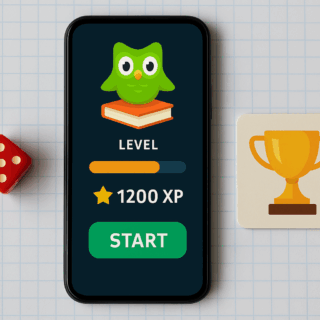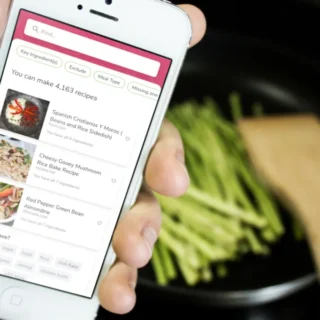BetterMe Health Coaching: Your Personal Coach in Your Pocket
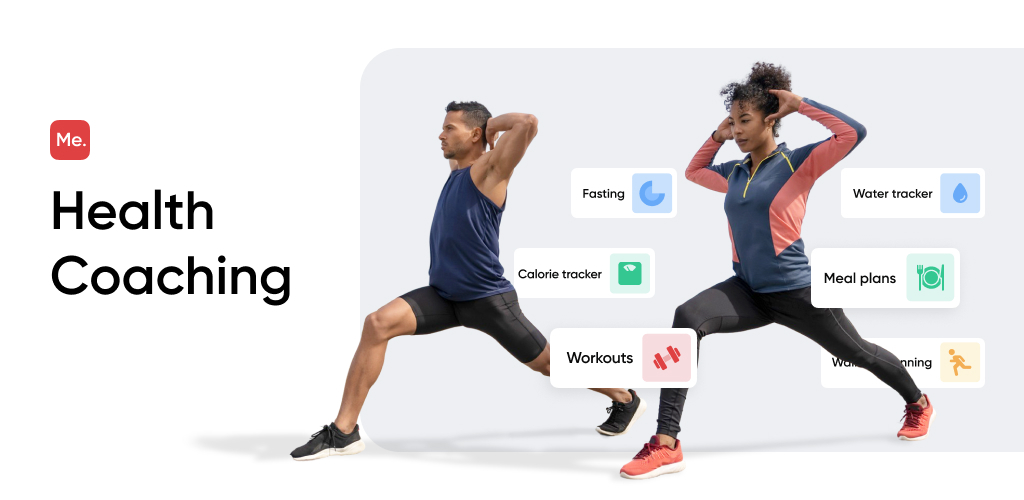
If you’ve ever wished for a health coach who fits in your pocket, doesn’t nag you when you skip gym day 2, and adjusts to your life’s chaos—meet BetterMe Health Coaching. This app promises a more balanced, personalized wellness journey by combining fitness, nutrition, and mindset in one place.
In this article, we’ll look under the hood: what BetterMe offers, where it shines, where it stumbles, and whether it might be a good fit for you.
A Bit of Background (Because Storytelling Makes Everything Better)
- Founded in 2016 in Kyiv, Ukraine, by Victoria Repa.
- The company has two main apps: BetterMe Health Coaching (fitness + holistic wellness) and BetterMe Mental Health (meditation, sleep, emotional support).
- BetterMe claims a large user base (e.g. over 150 million users) globally.
- Its mission: to support sustainable healthy habits—not just short-term fixes.
So it’s no fly-by-night side project; there’s a structure and ambition behind it.
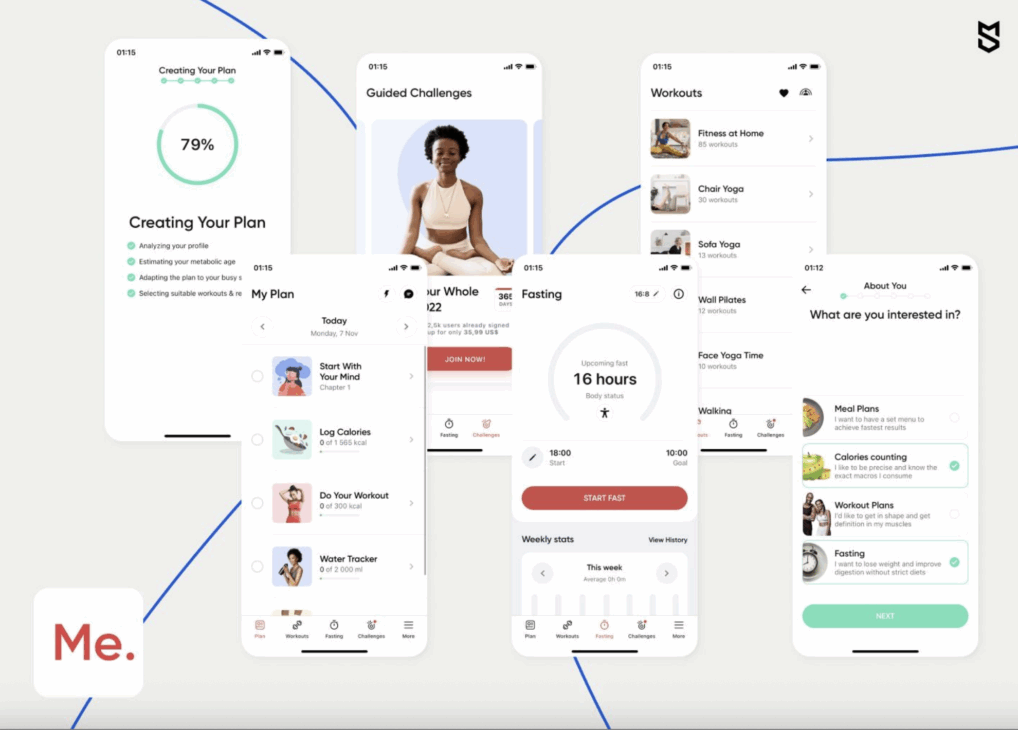
What BetterMe Health Coaching Does (Features You’ll Use)
Here’s a breakdown of the core features (and how they work in practice):
| Feature | What You Get | Why It Helps | Things to Note / Limitations |
| Personalized Wellness Program | After onboarding (goals, preferences, limitations), BetterMe builds a plan combining workouts, meals, mindset tasks. | You get something tuned to you, not generic “do 50 push-ups.” | The quality of personalization depends heavily on your input; if you skip parts, you may get less-optimal recommendations. |
| Workout Library (1,500+ workouts) | A wide variety: bodyweight, Pilates, dumbbell, HIIT, walking, etc. | You can pick workouts that match your available time, equipment, or comfort level. | For very advanced lifters, the depth of strength training might be limited. |
| Nutrition & Meal Plans | 20+ meal plans (keto, vegan, etc.), recipes, and guidance. | Having meal templates lowers decision fatigue — you don’t always have to guess “what to eat today.” | You might still need to adapt for local foods, budget, or availability. |
| Calorie / Water / Steps Tracking | Integrated trackers to log your intake, hydration, steps, and activity. | Seeing your daily metrics helps with accountability and habit formation. | As with any tracker, “garbage in, garbage out”—if you skip logs, the insights weaken. |
| Mindset & Wellness Modules | Daily “chapters” or lessons on mindset, stress, consistency, mental wellness. | Healthy habits aren’t just physical; mindset support can help you stay consistent. | The depth is limited; it’s not a substitute for therapy if you need deep psychological help. |
| One-on-One Coaching (Premium Add-on) | You can upgrade to personal coaching, with direct check-ins and tailored adjustments. | For users who want accountability and responsive feedback beyond the algorithm. | This is a paid add-on; some users feel upsells are strong. |
| Integration & Syncing | Works on iOS and Android; syncs with health sensors (step counts, heart rate) and possibly devices like smart scales. | Less manual entry. Your wearables feed data in. | Syncing is only as good as permissions, platform capabilities, and how well the app integrates in your region. |
| Specialized / Inclusive Programs | Includes accessibility options (e.g. wheelchair workouts), prenatal, senior programs, etc. | Makes the app more inclusive and adaptable to different users. | These are sometimes more “light” than core programs; if your condition is complex, consult professionals. |
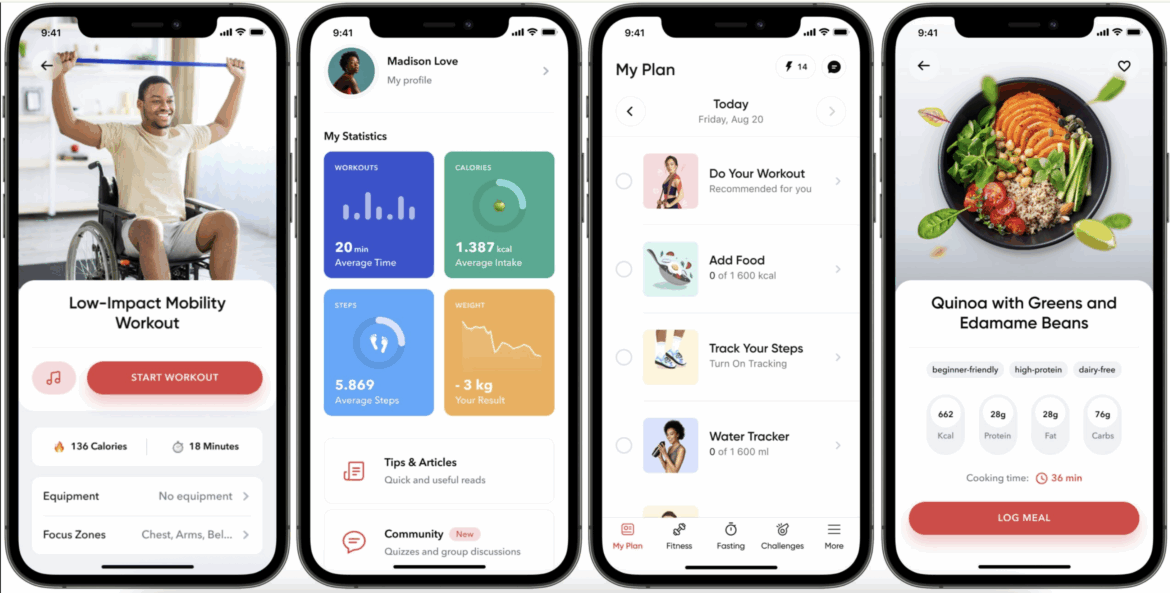
What’s Good, What’s Meh, and What You Should Watch
✅ Strengths (Why I’d Use It)
- Holistic approach: Combines fitness, nutrition, and mindset rather than focusing only on one domain. Many reviews highlight this balance.
- Beginner-friendliness: Many users find it accessible and not intimidating.
- Variety and flexibility: You won’t probably run out of workout types—lots of styles available.
- Mindset / wellness aspect: It’s nice to see stress, consistency, mental health being addressed (not always true in fitness apps).
⚠️ Weaknesses / Caveats
- Premium cost & upsell pressure: Some parts (especially coaching) require paid subscription. Some users feel upsells are persistent.
- For advanced users, it might feel light: If you already lift heavy or do advanced training, you might find the depth lacking. Some reviewers flag this.
- Dependency on user input: If you skip measurements, preferences or skip logs, the personalization gets weaker.
- Competition & alternatives: There are apps focused solely on nutrition tracking, strength progression, or community — BetterMe tries to be a jack of all trades.
How to Get the Most Out of BetterMe (Tips & Best Practices)
- Be honest and thorough during onboarding: your measurements, limitations, preferences matter.
- Start slowly and build consistency; don’t jump into every module at once.
- Use the tracking features faithfully (water, steps, logs) — that’s where insights come from.
- If coaching is in your budget, try it out; sometimes the nudges make a big difference.
- Periodically revisit your goals — life changes, and your plan should adapt.
- Don’t assume it’s perfect — treat it as a companion, not a replacement for professional care (especially for serious conditions).
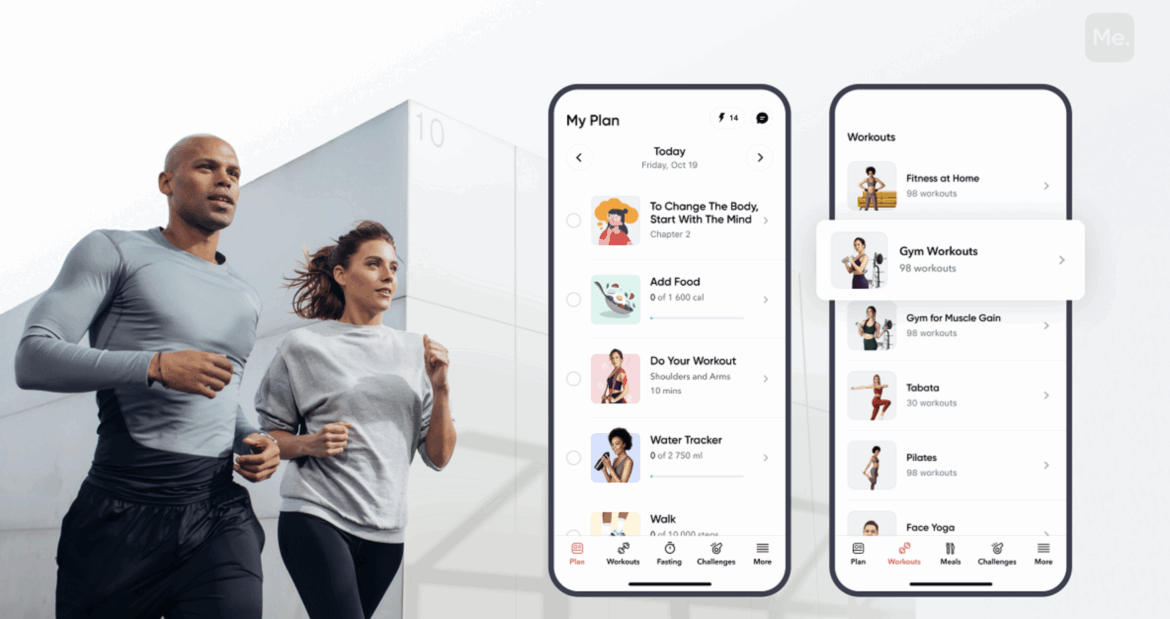
Final Verdict & Recommendation
BetterMe Health Coaching is a solid choice if you:
- Are newer or intermediate in fitness (not chasing elite performance)
- Want a balanced app that covers workouts + nutrition + mindset
- Value structure and convenience
- Don’t mind paying for premium features for better results
It’s not perfect — particularly for powerlifters or those who want deep specialization — but for many people, it can replace a handful of separate apps and reduce decision fatigue.

